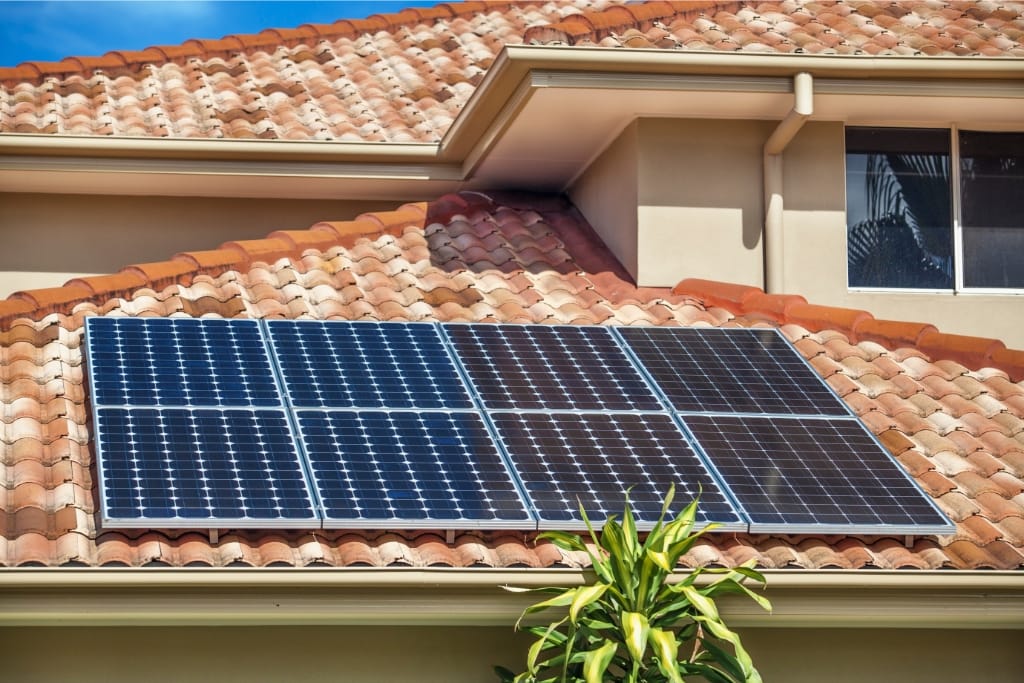Harnessing the power of the sun through home solar power systems has become an increasingly attractive option for many homeowners.
Though solar energy is a sustainable and cost-effective choice, it is often shrouded in misconceptions that can deter potential users.
From exaggerated costs to the myth of unreliability, these misunderstandings can hinder the adoption of this innovative technology.
It’s time to set the record straight and explore the real facts about home solar power systems.
Read on to uncover the truth behind the most common myths and empower yourself with the knowledge to make informed decisions about your energy future.
1)) Solar Panels Don't Work In Cloudy Or Cold Climates
Contrary to popular belief, solar panels are effective even in cloudy or cold climates.
While it's true that solar panels perform best under direct sunlight, they can still generate electricity in overcast conditions.
Countries like Germany and the UK, which experience frequent cloudy weather, have successfully implemented solar energy on a large scale.
Similarly, solar panels function efficiently in cold climates, sometimes even better than in hot temperatures, because photovoltaic technology relies more on light than heat.
Snow can reflect additional sunlight onto the panels, boosting their performance.
The widespread adoption of solar energy in various climates around the world proves that solar panels don't need a sunny, warm environment to be effective.
2)) Solar Power Systems Are Too Expensive
The notion that solar power systems are prohibitively expensive is a significant misconception.
The initial installation cost of solar panels has decreased considerably over the past decade, thanks to advancements in technology and increased market competition.
There are numerous incentives and financing options available, such as tax credits, rebates, and solar loans, which make solar power more accessible to homeowners.
Solar panels can lead to substantial savings on electricity bills over time, effectively offsetting the initial costs.
As energy prices continue to rise, the break-even point for recouping solar investment is reached even sooner.
The long-term financial benefits coupled with the available financial incentives mean that solar power systems are a viable and economical choice today.
3)) Solar Panels Require Constant Maintenance
One of the recurring myths about solar panels is that they require constant maintenance to remain operational.
In reality, solar panels are designed to be highly durable and require minimal maintenance, with manufacturers often providing warranties that last for 25 years or more.
Once installed, solar panels are typically self-sufficient, relying on rain to naturally wash away dirt and debris.
For areas with little rainfall, occasional cleaning may be needed, but this is far from the constant upkeep some imagine.
Modern solar systems also feature monitoring technologies that alert homeowners to potential issues, ensuring any necessary maintenance is straightforward and infrequent.
The robust nature of solar panels, in combination with minimal upkeep requirements, underscores their reliability as a low-maintenance energy solution.
4)) Solar Panels Will Damage My Roof
The misconception that solar panels will damage your roof is unfounded.
Professional solar panel installations are carefully planned and executed to prevent any harm to your roofing structure.
Panels are typically mounted using specialized racks, ensuring that the roof's integrity is maintained and penetrations are properly sealed to prevent leaks.
In many cases, having solar panels can protect your roof from environmental wear and damage by acting as a barrier against harsh weather.
Furthermore, reputable solar companies conduct thorough roof inspections and ensure that any necessary repairs are completed before installation.
When properly installed, solar panels enhance your property's value without compromising your roof's quality.
5)) Selling My Home With Solar Panels Is Difficult
Selling a home equipped with solar panels is often perceived as challenging, yet the reality is quite the opposite.
Homes with solar power systems are increasingly attractive to buyers due to the potential for reduced energy costs and the added benefit of sustainability.
Studies suggest that homes with solar panels can sell faster and at a premium compared to those without.
This is because prospective buyers recognize the long-term financial savings that solar energy can provide, along with the growing importance of eco-friendly living.
As renewable energy becomes more mainstream, the presence of solar panels is often seen as an upgrade to the property, adding value.
Rather than being a hindrance, solar panels can enhance your home's marketability, making it easier to sell.
6)) Solar Power Is Not Reliable
Solar power is often criticized as being unreliable, yet this belief overlooks the advancements in energy technology that have addressed previous concerns.
Modern solar systems are equipped with enhanced storage capabilities through batteries, allowing for energy to be stored during peak production times and used when the sun is not shining.
This integration of storage solutions ensures a continuous power supply, making solar energy more dependable in various conditions.
The grid-based systems can supplement solar production when needed, providing versatility and adaptability to diverse power demands.
With improved forecasting and monitoring technologies, solar power generation is more predictable than ever before.
Thus, contrary to old misconceptions, solar power has evolved into a stable and consistent source of energy suitable for a wide range of applications.
7)) Getting Solar Panels Installed Is Complicated And Disruptive
While it is a common misconception that getting solar panels installed is both complicated and disruptive, modern installation processes have become streamlined and efficient.
Professionals in the solar industry are well-versed in handling all aspects of the installation, including obtaining necessary permits, conducting site assessments, and performing meticulous installations tailored to the specific needs of each home.
With pre-designed systems and the use of advanced technology, the disruption to daily life during the installation process is minimal.
Installers work diligently to ensure that the panels are set up safely and quickly, often completing the entire process in just a few days.
Homeowners can enjoy the benefits of solar energy with little inconvenience and minimal disturbance.
Therefore, rather than a burden, the installation of solar panels is now a straightforward and smooth process, offering a hassle-free transition to renewable energy.
8)) Solar Power Systems Cause Pollution During Manufacturing
While it is true that the manufacturing of solar power systems involves some level of pollution, it is essential to consider the broader environmental picture.
The production processes require natural resources and energy, and they emit greenhouse gases.
However, technological advancements have significantly reduced these emissions over the years.
The overall environmental impact of solar energy is considerably lower than that of conventional fossil fuels, both in the short and long term.
Most importantly, once solar systems are operational, they produce clean energy without emitting additional pollutants, contributing to the reduction of the carbon footprint and fostering a more sustainable future.
Therefore, although some pollution occurs during manufacturing, solar power remains a vital tool in the fight against climate change, with benefits that far outweigh its initial environmental costs.
Conclusion
Embracing solar energy is a transformative step towards a more sustainable future, providing both environmental and economic benefits.
While certain misconceptions persist, the evolving technology and increasing adoption of solar power prove its viability and desirability.
With the ease of installation, reliable energy production, and long-term savings, solar panels enhance the value of properties and offer significant advantages over traditional energy sources.
In addressing pollution concerns, the minimal environmental impact during manufacturing is outweighed by the substantial positive contribution solar energy makes to reducing carbon emissions.
As awareness grows and technology advances, solar power is set to play a pivotal role in shaping a cleaner, greener planet for generations to come.
Are You Looking For The Best Solar Power Installers In Sacramento Ca? Click Here To Get In Touch With A Solar Expert Today!
Download Our Free E-book!








